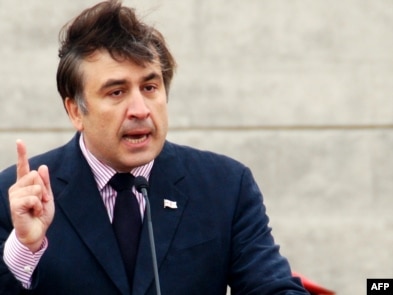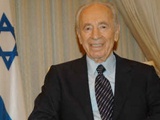19:37 24/06/2009
MOSCOW. (Alexander Knyazev, director of the regional branch of the Institute of the CIS, for RIA Novosti) – The European Union and Turkey plan to sign an intergovernmental agreement on the Nabucco natural gas pipeline project on June 25 in Ankara.
Why such a romantic name?
“Nabucco” is an opera by Giuseppe Verdi based on a biblical story about the plight of the Jews as they are assaulted and subsequently exiled from their homeland by the Babylonian King Nabucco (Nebuchadnezzar). It is also an enchanting story of love and struggle for power.
The latter element of the story is probably the only thing in common between the opera and the gas pipeline project initiated by U.S. President George W. Bush and based on some European and post-Soviet countries’ non-love of Russia, as well as the global battle for elbowing Russia out of the Eurasian gas market.
Since Nabucco is mostly a political product, Turkey’s efforts to use its transit location to its best advantage are perfectly logical from the viewpoint of its national interests.
Turkey will host a major portion of the 2,050-mile pipeline, which is to bring gas supplies from Central Asia and the Middle East to Europe without using Russian resources or territory.
A consortium of six countries – Austria, Hungary, Romania, Bulgaria, Turkey and Germany – was set up to build the pipeline to Central Europe via Turkey and the Balkans. The shareholders will finance one-third of expenditure, with the remaining part to be covered by international financial and credit organizations.
The more than 3,300-km pipeline has been estimated at 7.9 billion euros ($10.7 billion) and will have an annual throughput capacity of 31 billion cubic meters. It is to be completed by 2013.
However, technical calculations show that it cannot be commissioned sooner than in 2015; and that given the high and stable energy prices. The project is burdened with political risks and will run across a difficult geographical terrain.
Europe, in truth, is encumbered by problems with energy delivery routes.
A small Polish oil pipeline running from Odessa to Gdansk via Brody in Ukraine has long been incapacitated by Chevron’s inability to supply oil from the Tengiz deposit in Kazakhstan.
Poland, which has been trying to break its dependence on Russian energy supplies, should now heave a sigh of relief, since supplies via Belarus are likely to shrink. The same goes for Lithuania whose oil refinery, Mazeikiu Nafta, that used Russian oil, has been idling since last year.
If this is the energy freedom they wanted, then the two countries are paying an excessively high price for it. Europe’s efforts to solve its energy problems without Russia by importing energy resources from Central Asia are counterproductive – this is a fact. And the same is true of the Nabucco project.
On the contrary, Russia’s South Stream project will have the guaranteed amount of natural gas, and its capacity can be subsequently increased. A recent agreement between Russia’s Gazprom and Italy’s Eni stipulates increasing it to 63 billion cubic meters annually. Besides, Nabucco is unlikely to be competitive compared to Gazprom’s project in terms of prices.
The Russian gas export monopoly plans to pay for the South Stream construction and gas distribution and to sell gas to end users in Europe at attractive prices.
Gas for Nabucco is expected to come from Turkmenistan and possibly Iran. However, Russia has an agreement with Turkmenistan under which it buys all of its export gas, and Russia and Iran may veto the construction of any pipeline along the bottom of the Caspian Sea.
This means that Nabucco can receive gas only from Azerbaijan’s Shah Deniz deposit, but the probability of this is undermined by tensions between Turkey and Azerbaijan over the recent thaw in Turkish-Armenian relations.
In other words, Nabucco will have no reliable sources of natural gas in the near future.
A pipeline partnership is unimaginable without stability and reliability, something the U.S. administration cannot ensure even to its taxpayers. And so, what does the U.S. administration have to do with the Nabucco project?
Unlike the most naive part of the European establishment, the East European and other “democratic” media describe Nabucco not as a European economic or energy project, but as an American political venture.
The chaotic chanting in support of the Nabucco project reminds me of the “Va, pensiero” chorus of Hebrew slaves from Verdi’s opera – beautiful yet altogether gloomy and hopeless.
The opinions expressed in this article are the author’s and do not necessarily represent those of RIA Novosti.










